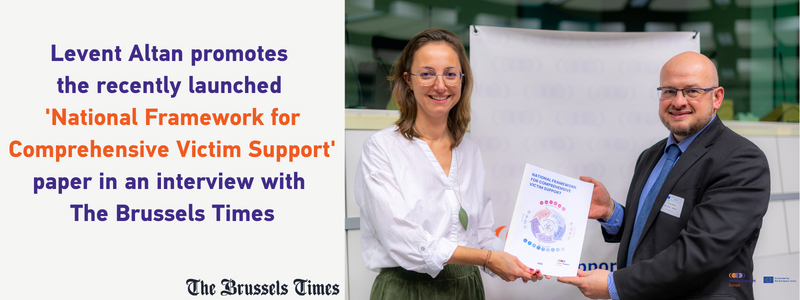Sexual assault survivor – The difference between ‘victim’ and ‘survivor’
It’s a phrase heard countless times as more and more people feel empowered to share their experiences of sexual assault. People use the phrase to describe themselves, indicating that they survived a traumatic experience.
“Sexual assault survivor” is now often used in place of “sexual assault victim” when referring to an individual who has been sexually assaulted. The gradual shift in terminology from victim to survivor was motivated by the fact that the term survivor denotes a sense of newfound power and strength in recovery.
An issue with declaring survivor as the default label, though, is that not everyone who has been sexually assaulted finds that the word survivor accurately encaptures their individual experience. Although the difference between survivor versus victim can appear inconsequential on the surface, the labels and categories that society assigns hold immense significance.
While I wholeheartedly respect and understand a person’s choice to identify as a survivor, I consider myself to be a victim. Though I survived in the technical sense, I am irrevocably changed as a result of those negative experiences. To survive means to continue to function and prosper. And honestly, I am not able to function and prosper in the same way that I once could. I know I am not alone in that respect.
According to the Guardian, 80 percent of teenage girls suffer from a mental illness after experiencing sexual assault. That glaring 80 percent includes a high rate of comorbidity — 55 percent of those women suffered from a minimum of two disorders. Therefore, the term survivor does not always resonate with individuals who are faced with disorders such as debilitating anxiety, depression or post-traumatic stress disorder after experiencing sexual assault. Recovering from the assault evolves into a twofold issue when mental illness is involved.
An individual also could opt not to be called a survivor because they may implicitly associate survivorship with heroism. In the context of heroism, a hero is faced with a substantial obstacle and as a result of surmounting the obstacle, emerges as a stronger person than before. For those individuals in the process of conquering the trauma of assault, even as emotional pain remains beneath the surface, and for those individuals who are struggling to regain personal strength, perhaps survivor could be a misnomer.
Another concern with the term survivor is that there is no reference to the existence of a perpetrator. When someone is a cancer survivor, there is no individual at fault. But in the case of sexual assault, there is always an individual at fault — the perpetrator. The word survivor doesn’t recognize that a victim requires the existence of a perpetrator. The two roles are interdependent. Because of the emphasis on the fact that there is a perpetrator when the term victim is used, some may prefer that term.
However, that is not to say that choosing to identify as a survivor is in any way wrong. Both terms are laden with certain images, stigmas or associations.
When some envision victims, they picture a weak, helpless individual who actively does not fight back. In the case of sexual assault, many individuals are physically incapable of fighting back or fear a worse outcome with resistance. This does not reflect weakness or cowardice on their part, but rather an attempt to survive the situation. For these individuals, survivor seems more fitting while the word victim seems belittling.
Once an individual does, in their mind, recover from the incident, then the term “victim” may not seem suitable. To some, referring to oneself as a “victim” can imply they somehow belong to the perpetrator, that the perpetrator still holds power and is still in control of their emotions, their characteristics and the course of their life. Once this feeling dissipates, calling oneself a survivor may be a better fit.
Additionally, the word victim is linked to the phrase “playing the victim.” Victims are often accused of overdramatizing a situation or faking the severity of an instance. Given the culture of disbelief that continues to surround sexual assault, many individuals understandably want to distance themselves from victim to prevent the invalidation of their sexual assault.
Neither the term victim nor survivor perfectly encompasses the experiences of individuals subjected to sexual assault. And a single, isolated experience should not define a person — their humanity is ultimately what matters. Regardless, every individual deserves the right to identify with any label they find fitting. And, if labelling in itself feels restricting and unreflective, then an individual may identify as a victim or survivor simultaneously or at different points throughout their process of recovery.
Recommend0 recommendationsPublished in Uncategorised


